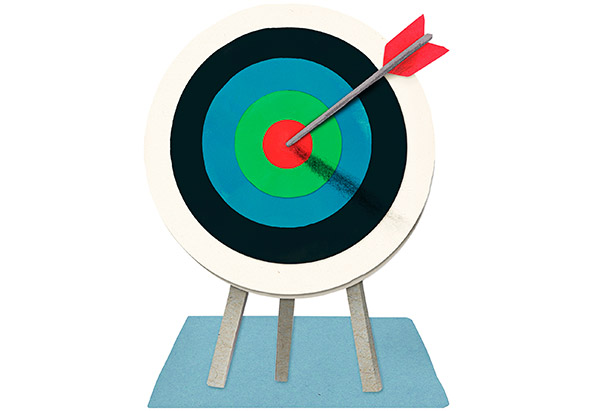The Right Way to Learn from Your Mistakes
We all make mistakes, but new research shows there's a right way to deal with them.

Illustration: Maria Bruni
PAGE 2
Fortunately, a growing body of research has found that we can rewire our response to mistakes so that they're not just scary, anxiety-inducing rabbit holes. The key: self-compassion. "Several studies show that when we practice a new way of approaching failure, it can change an error from something we fear into something we embrace," says Neff. "The hardest part is giving yourself permission to relate to the mistake differently."
One University of California, Berkeley, study published last year found that when a group of students failed a test, those who were reminded to be self-compassionate (with phrases like "Try not to be too hard on yourself" or "It's common for students to have difficulty with tests like these") were motivated to spend more time studying for the next exam, compared with students who were given statements meant to simply boost their self-esteem ("You must be intelligent if you got into Berkeley!"). "We found that people who were taught to be kind to themselves felt more motivated to see their mistakes as a chance for growth," says lead researcher Juliana Breines, PhD. "Outside validation didn't seem to matter as much."
Recently, an out-of-town friend texted to remind me when she was scheduled to arrive at my house, and I realized that I had completely forgotten I'd invited her. I spent the entire night anxiously wondering, How could I forget a person? I'm going crazy! But in the light of morning, I took a deep breath. I cleared my calendar, pushed up a work deadline, rescheduled some events, and apologized to those I had double booked. Summoning Neff's wisdom, I tried to look at this error as a "wake-up call" to remind myself not to take on too much. And, as Neff advised, I talked to myself from the perspective of a caring, problem-solving friend: Everybody has scheduling screw-ups. Build in more reminders next time. Let. It. Go.
Could I actually embrace the mistake? That seemed like a stretch, but for once, a singular oversight didn't feel like a black mark on my soul. I fixed what I could and stopped obsessing about the rest. No excoriation necessary.
Bonnie Tsui writes frequently for The New York Times and The Atlantic; her next book is a collection of essays on swimming.
More on Learning from Mistakes
One University of California, Berkeley, study published last year found that when a group of students failed a test, those who were reminded to be self-compassionate (with phrases like "Try not to be too hard on yourself" or "It's common for students to have difficulty with tests like these") were motivated to spend more time studying for the next exam, compared with students who were given statements meant to simply boost their self-esteem ("You must be intelligent if you got into Berkeley!"). "We found that people who were taught to be kind to themselves felt more motivated to see their mistakes as a chance for growth," says lead researcher Juliana Breines, PhD. "Outside validation didn't seem to matter as much."
Recently, an out-of-town friend texted to remind me when she was scheduled to arrive at my house, and I realized that I had completely forgotten I'd invited her. I spent the entire night anxiously wondering, How could I forget a person? I'm going crazy! But in the light of morning, I took a deep breath. I cleared my calendar, pushed up a work deadline, rescheduled some events, and apologized to those I had double booked. Summoning Neff's wisdom, I tried to look at this error as a "wake-up call" to remind myself not to take on too much. And, as Neff advised, I talked to myself from the perspective of a caring, problem-solving friend: Everybody has scheduling screw-ups. Build in more reminders next time. Let. It. Go.
Could I actually embrace the mistake? That seemed like a stretch, but for once, a singular oversight didn't feel like a black mark on my soul. I fixed what I could and stopped obsessing about the rest. No excoriation necessary.
Bonnie Tsui writes frequently for The New York Times and The Atlantic; her next book is a collection of essays on swimming.
More on Learning from Mistakes



